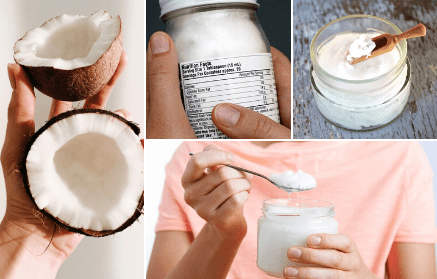Table of Contents
Minimum you need to know
High recieve of coconut oil can increase the risk of cardiovascular diseases but there is not clear proof for that. Coconut oil contains potentially prosperous MCT oils, therefore triglycerides with medium chain, but on lower levels than people think. Every year, there are new proofs.
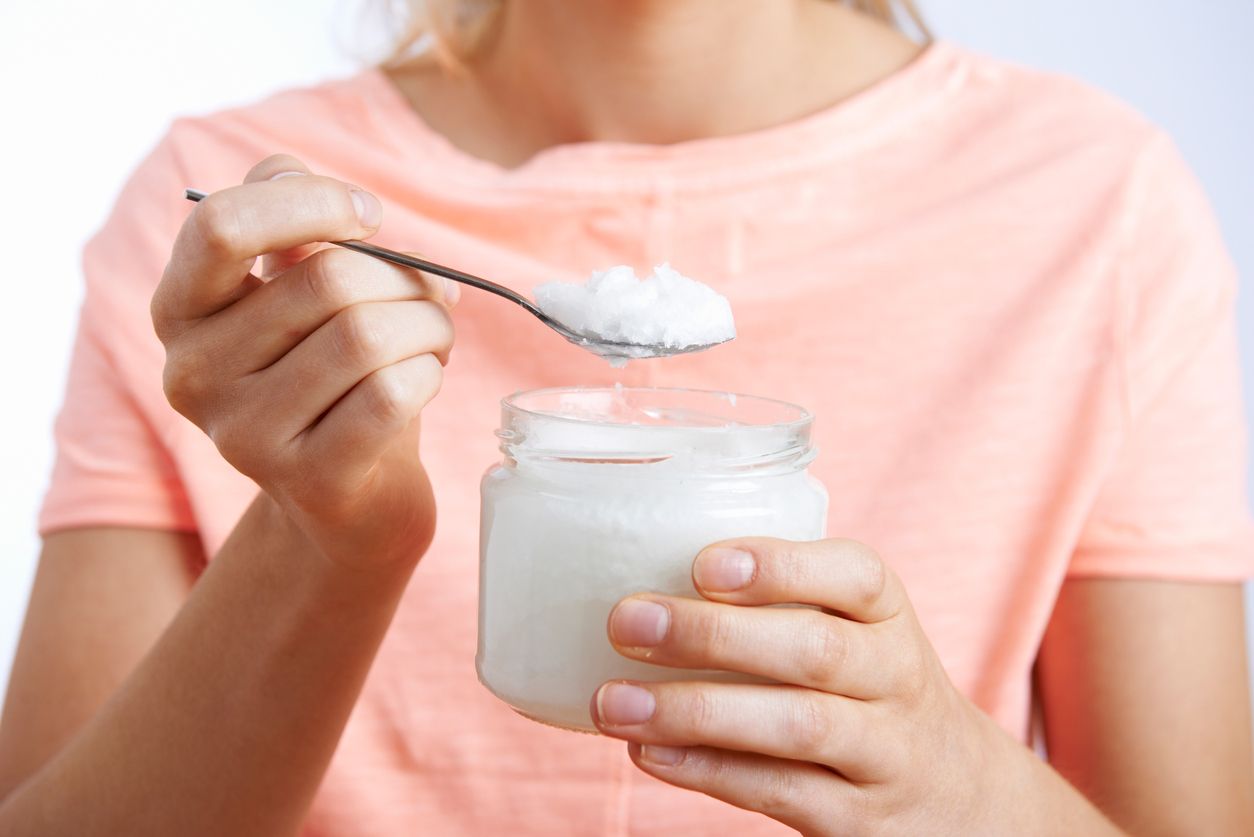
1) PLUS: The nations which had eaten tons of coconut oil, didn’t suffer with the heart diseases
Coconut nuts are very appreciated mostly by island cultures in Pacific islands. Two islands, where there is the high amount of coconut oil, are Tokelau and Kitava. The inhabitants of Tokelau island had been receiving astronomical 63% calories of coconut, while neither of them didn’t show the indications of previous heart attacks at EKG examination.
Maybe in this case, it is shown that fats are not the enemy but instead of them, carbohydrates are? WRONG. Kitavans had been receiving 70% of calories in the form of carbohydrates with low amount of sugar or fruit sugar and starch, while they had low insulin levels and there wasn’t find out any heart disease.
Are these islanders healthy thanks to the genetics maybe? Wrong again, as the following research showed, reduction of the receive of saturated fats after they had migrated and began to eat “modern”, significantly worsen their health.

2) MINUS: The nations which were eating tons of coconuts, didn’t eat refined coconut oil
These island cultures, even before they were “blessed” with our moderns rafined food, they had been eating coconut pulp and coconut cream. They hadn’t had factories for isolation and purification of coconut oil, fantastic shops with food which offer consistent dose of refined oil.
Not speaking about these cultures were eating the nutrition full of bulbs, fruit and fish. While our nutrition is full of soy, rice and corn. Physiological context is important and saturated fat from coconut can be very harmful in one and prosperous in another context.
3) PLUS: The heart condition of the animals which were feeding by refined coconut oil got better
You won’t find the studies about the impact of coconut oil on human health which would meet the special conditions of the study on the animals: extremely controlled food in laboratory or feeding the rodents with coconut oil for most of their life.
In one special experiments with mice, refined coconut oil succeeded better than refined olive oil in relation to protection against hardening of the arteries. However, there was a great objection: another experiment with mice in the same study proved worse results of coconut oil than olive oil. The mice examined for effects of coconut oil, have deleted their LDL receptors, while the other mice have deleted their ApoE proteins.

4) MINUS: People are not laboratory mice
The good news is that mice are omnivores like we are. The bad news is that we are much different from mice and transmission research faces many problems. There are certain differences. For instance, people can’t produce their own vitamin C but mice (and majority of other animals) can. Mice’s hearts can react completely different on medicine in contrast to human’s heart. And when the diseases are examined on mice, we often discard gene in order to study the problem more specifically. The same as the discard of LCL receptor of mice which is mentioned in previous point, where mice are known as mice with inborn LDLR (with low density of lipoprotein receptor). If you are not mice, the results might not be applicable for you.
5) MINUS: Pure fats are usually worse for the health of heart
Coconut oil doesn’t contain some components of coconut cream such as polyphenols, dietary fibre and vitamin E. No one knows how important it is because these two products are not compared very often.
But we can enlighten from this analogic example. Fill the empty space in this sentence please:
“Coconut oil resembles the coconut cream as …… resembles the whipped cream”.
The answer is butter which is the basis of the French cuisine and which Americans are afraid of. The fear is not fully unjustified because butter has greater negative impact on LDL cholesterol in comparison to whipped cream which has unimportant and small impact.
In order to understand why it is so, you have to open your mind and understand, let’s call it “matrix”. In this case, it is concerned with food matrix which is the membrane of the milk fat which surrounds creamy milk fat, unless it is adjusted to butter. Or matrix which the part is coconut fat, before you put it into refined product – coconut oil. These procedures can lead to various physiological effects including possible effect on cardiovascular health.
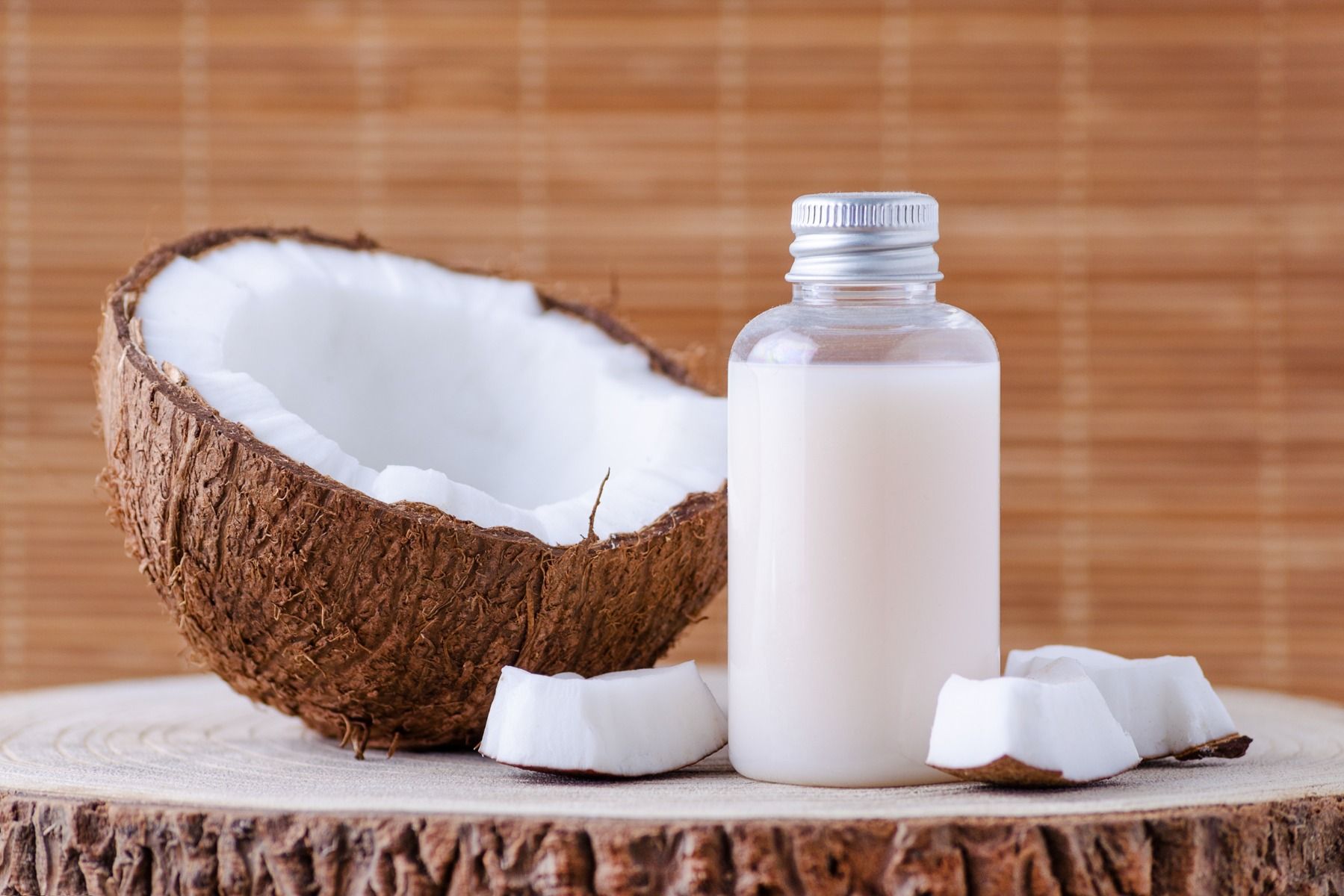
6) PLUS: Coconut oil contains MCT oil which will help you to lose weight
MCT (medium chain triglycerides) oil is highly refined oil which is made of coconut or palm oil. Since it is highly refined, it means it has to be bad, hasn’t it? The opposite, MCT oil is potentially strong helper at weight loss!
Let us clarify it: if you have a few tablespoons of MCT oil every day, there is a high probability that you will gain weight because fat is energetically saturated. However, the studies show that replacement of several existing plant oils by MCT oil could lead to daily calorie reduction in 500 kcal/day. This fact is very interesting, unfortunately the proofs are not clear.
You might be interested in these products:
7) MINUS: The proof about the weight loss by the impact of coconut oil doesn’t reflect the proofs about MCT oil
If you have read the previous point, you can be enthusiastic about coconut oil and its potential to help you with weight loss. We are sorry about destroying this enthusiasm but the newest document (april 2017) showed that when eating coconut oil, people have a feeling of more hunger than when eating olive oil.
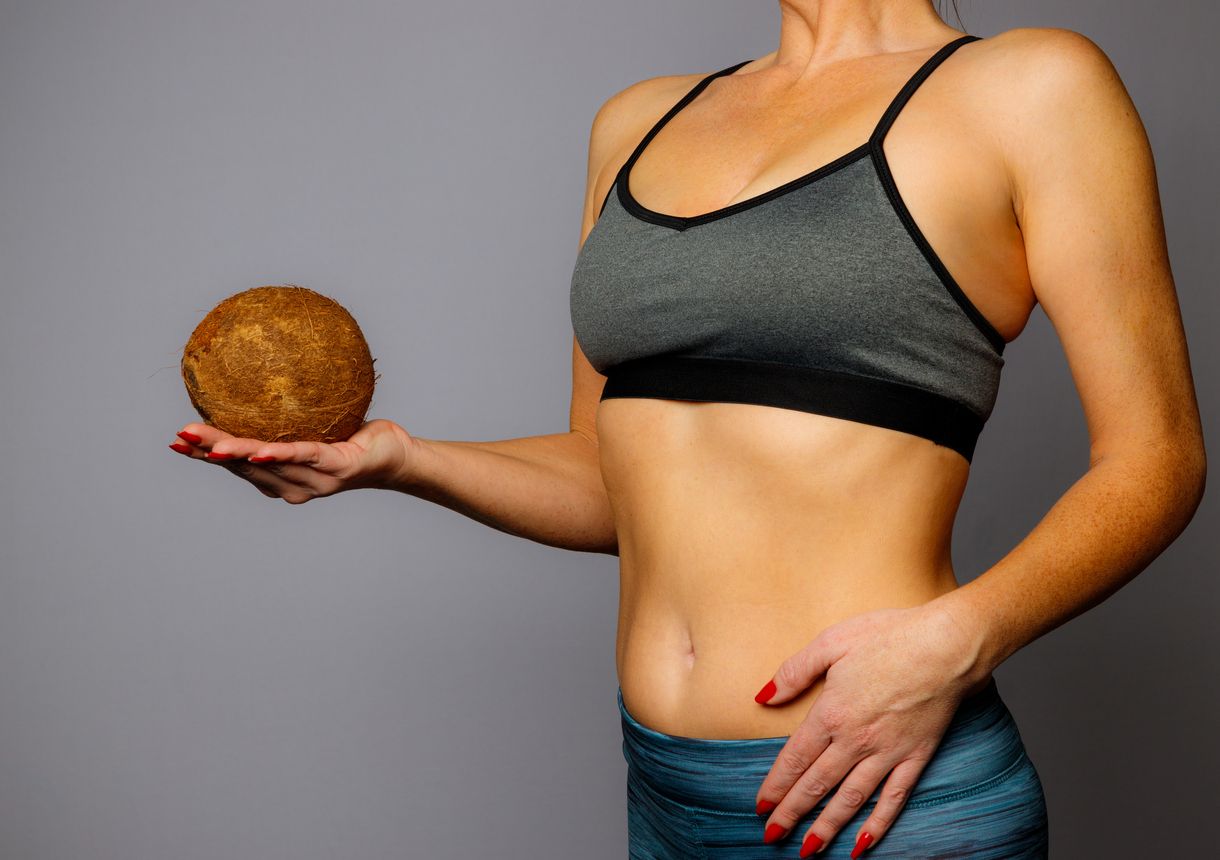
8) MINUS: In marketing, coconut oil is falsely compared to pure MCT oils
This is a problem concerning most information about the nutrition on the internet. You can say something such as “coconut oil contains amazing MCT; by this, it helps to weight loss, epilepsy and diabetes!” and no one even blinks with the eye because this information is too complicated for the average person.
Coconut oil is not the same as MCT oil, in reality, it is completely different. Coconut oil contains MCT chains which half of them is created by fatty acids. These come from lauric acid which is considered the fatty acid with long chain, not with middle chain as it is within classic MCT chains. Let’s say that it is pseudo-MCT. Lauric acid has the length of 12 carbons, while the common therapeutic MCT are shorter (8 or 10 carbons long). These two carbons can cause big difference in individual absorption phases. Shorter fatty acids with 10 or less atoms of carbon, are more soluble in water phases and also act as weak electrolytes, which means that they are absorbed more quickly. The final result is that approximately 95% of MCT are absorbed directly for the potential use such as energy, while lauric acid is absorbed as energy in 25% only.
The individual fatty acids can be classified as acids with medium or long chain but they can be triglycerides. It was shown that only about 4% of triglycerides which are in coconut oil, can be classified as triglycerides with medium chain. This can have big impact on cholesterol effects.
9) PLUS: MCT oil and coconut oil can help people with Alzheimer’s or epilepsy
Patients with Alzheimer’s have brain which doesn’t catch glucose as well and the only reserve fuel which the brain can use, are ketone bodies. These are usually produced as a side effect of the diet with very low carbohydrate content, which may not be the best for the patients with Alzhaimer. The other way to achieve ketone bodies is consumption of fats, which support ketone production. And that’s exactly the role of MCT oil.
What about coconut oil? No one knows this because it is not as good as pure MCT oil in production of ketones. Less refined coconut products are constantly examined by theories in possible help at the Alzheimer and epilepsy treatment.
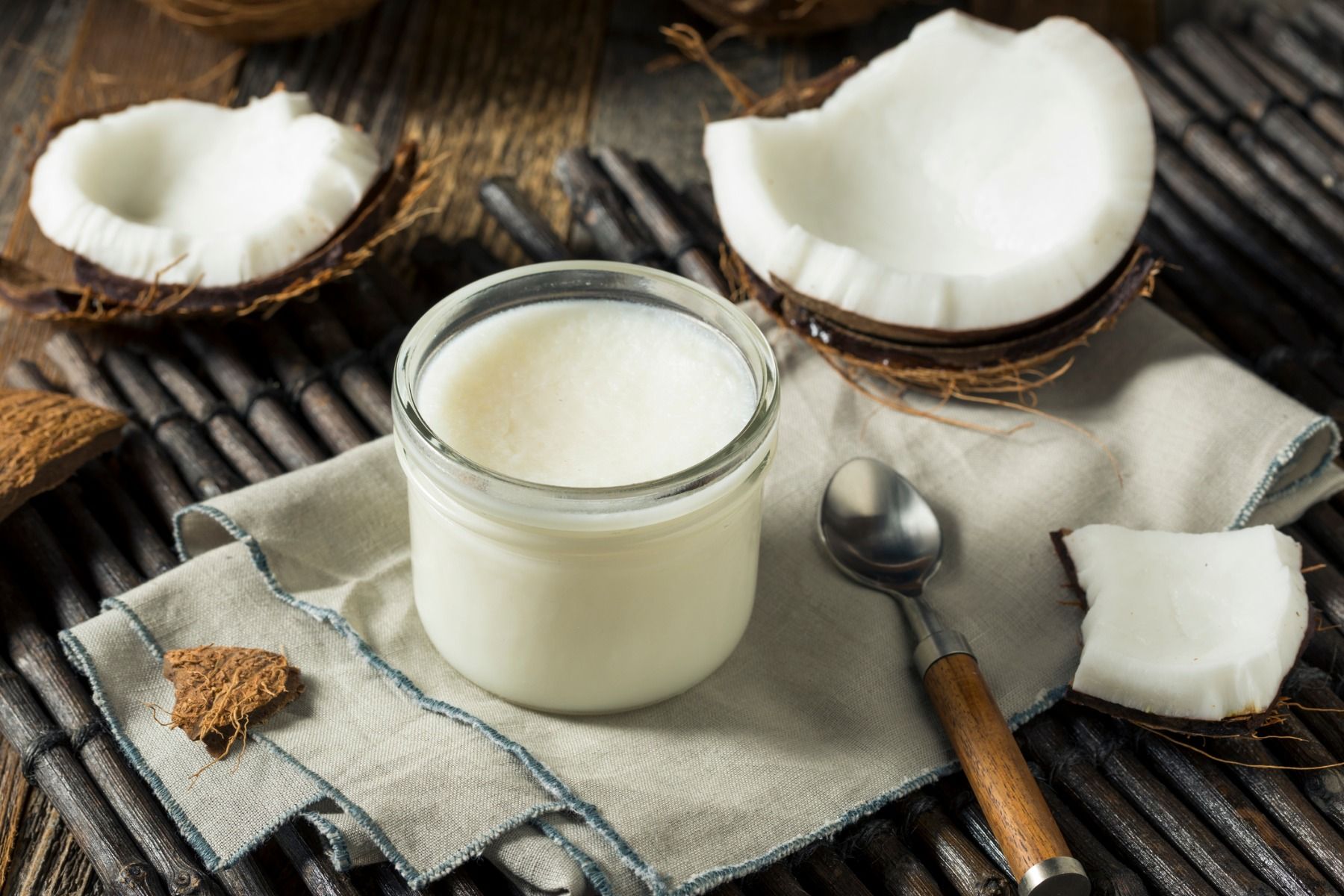
10) MINUS: The health and dietologic organization warn against it
American Heart Association issued a statement on 15th June of 2017, which concluded only one small part about coconut oil, but in the community “bio nutrition”, it invoked many reactions. It is a little funny because pure (purified) coconut oil is modern invention and not something that you would find in nature such as coconut. Anyway, these are two key parts of the statement:
“The recent research presents that 72% of the American public evaluated coconut oil as “healthy nutrition” in contrast to 37% specialists on the nutrition”
“…because coconut oil increases LDL cholesterol level which is the cause of CVD (chemical vapor deposition) and has no positive compensating effects, we recommend not to consume coconut oil.”
Are the nutrition specialists only angry and dezinformed? Don’t judge them so quickly because the second part of the impact on cholesterol is the important note. The first one is mostly the sign of increasing distrust which people have towards the health organizations. When speaking of distrust …
11) PLUS: Health and nutrition organizations are not unmistakable
It took decades, while the Organization for Nutrition has changed its old-style advice concerning cholesterol in food. Mistaken attempts from the 60’s and 70’s had indicated that cholesterol in food is the main culprit at the clogging of vessel. Soon, it was discovered that cholesterol in blood doesn’t have too much in relation to cholesterol in our nutrition but it’s related to the amount and type of sugars and fats in the food. In 2010, there was presented in the guide of “guidelines for healthy eating” that it is recommended to reduce cholesterol receive but in 2015, these recommendations disappeared.
The official recommendations of diet in the clinic studies are not listed the right way, such as for example, testing of older diet version of American Heart Association. The interesting thing is that authors came to end that “it didn’t work that well…, we have to reduce cholesterol and fat level in blood even more”. Latest analyses of red meat and saturated fats, don’t prove direct association to heart diseases.
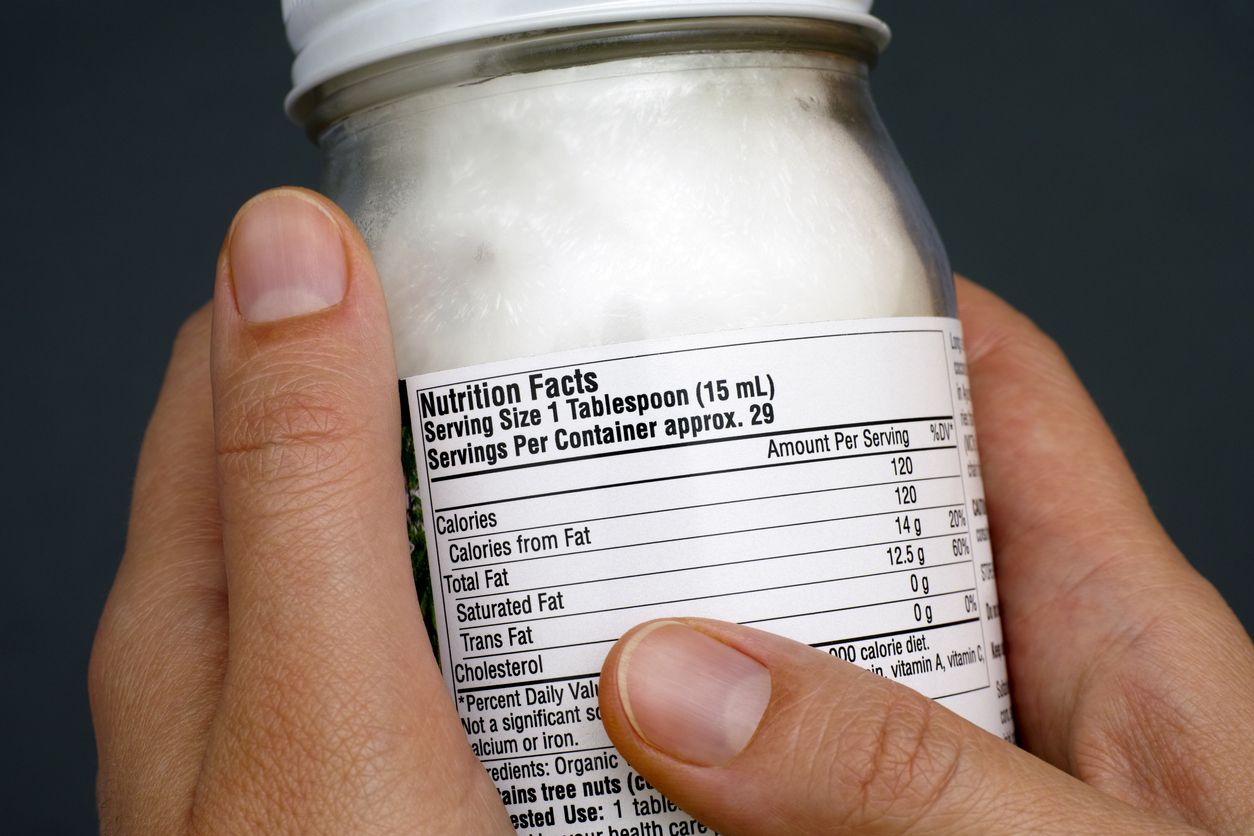
12) PLUS: Coconut oil increases the level of HDL (good) cholesterol
There were seven studies realized which compared coconut oil (with high content of saturated fats) and plant oil with high content of unsaturated fats. 5 of 7 patients showed increased HDL levels. The results should be considered as the good news because HDL is generally regarded as protection against heart disease. On the other hand …
13) MINUS: The increase of HDL may not mean too much
There were two attempts which compared coconut oil and butter, while both of them increased HDL in similar amounts. Butter may not be that bad as people think but there is not any convincing proof about its impact on the heart health (at least in comparison with fats such as olive oil)
Besides that, the idea “HDL is good and LDL is bad!” is too simplified. While low level of HDL is a precursor of heart disease, the attempts to increase its level by using medicine have failed.
HDL is still considered as the cause of heart diseases but don’t concentrate on the tactic of HDL increase only. The oxidation of lipids, arterial inflammation and calcification are other factors which enter the game.
14) MINUS: Coconut oil is literally negative for LDL
If you mention LDL, some people will automatically stop listening to you: “I can’t hear you, you fell into the trap, while I escaped the wrath and ate my butter sticks without shame”. This approach is very negative because the research about regulation of LDL receptors – oxidized lipids is very interesting. The common idea is that consumption of coconut oil / butter / anything that increases prosperous LDL cholesterol only and not harmful, small and dense LDL cholesterol, which gets into blood vessels. Here is a very short explanation:
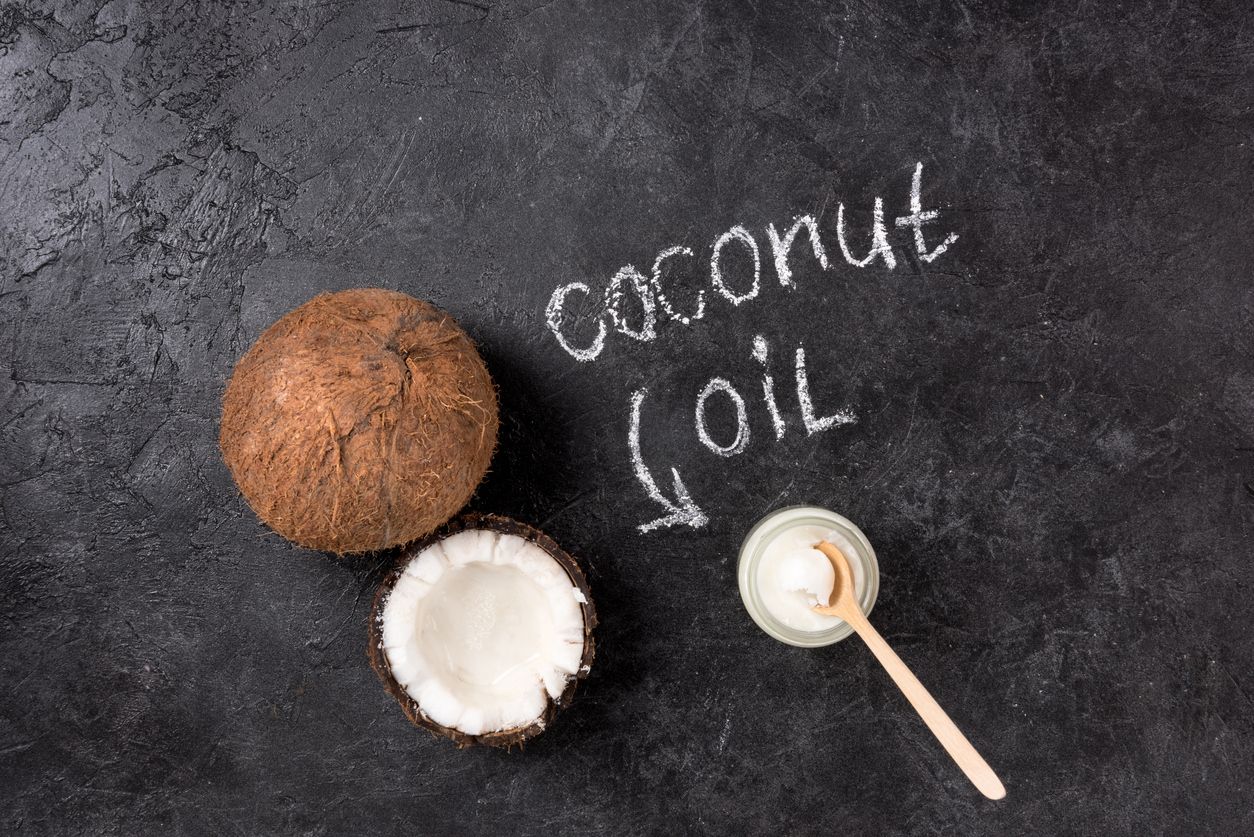
Endothelial gaps are not big enough in order to infiltrate these two types of LDL cholesterol into blood. The amount of cholesterol seems to be relatively bigger determinant for damage than the size of the particle. The size usually has small or none proportion for controlling other variables.
Besides that, no one knows how much of coconut oil increases smaller one and how much of coconut oil increases bigger type of LDL cholesterol. But it can be estimated with the help of triglyceride:HDL proportion as the measuring unit.
On the other hand, coconut oil led to increase of triglycerides in comparison with butter and beef meat in two different studies. However, the overall results for coconut oil are not clear because it doesn’t improve triglycerides more than unsaturated sunflower oil. And while some saturated fatty acids are associated with higher LDL cholesterol, coconut oil is mixture of saturated acids which were beneficial in this study (myristic acid and palmitic acid, they together create approximately quarter of fats in coconut oil)
15) PLUS: Coconut oil is good for cooking
Coconut oil is incredibly saturated oil on plant basis and this saturation is its benefit at cooking. The cooking includes warmth, and warmth is usually associated with chemical bonds. But chemical bonds in coconut oil are more stable than in majority of other oils, so they don’t oxygenate and polymerize so easily.
Note: Polymerized unsaturated oils are ideal for baking on the cast iron pans.
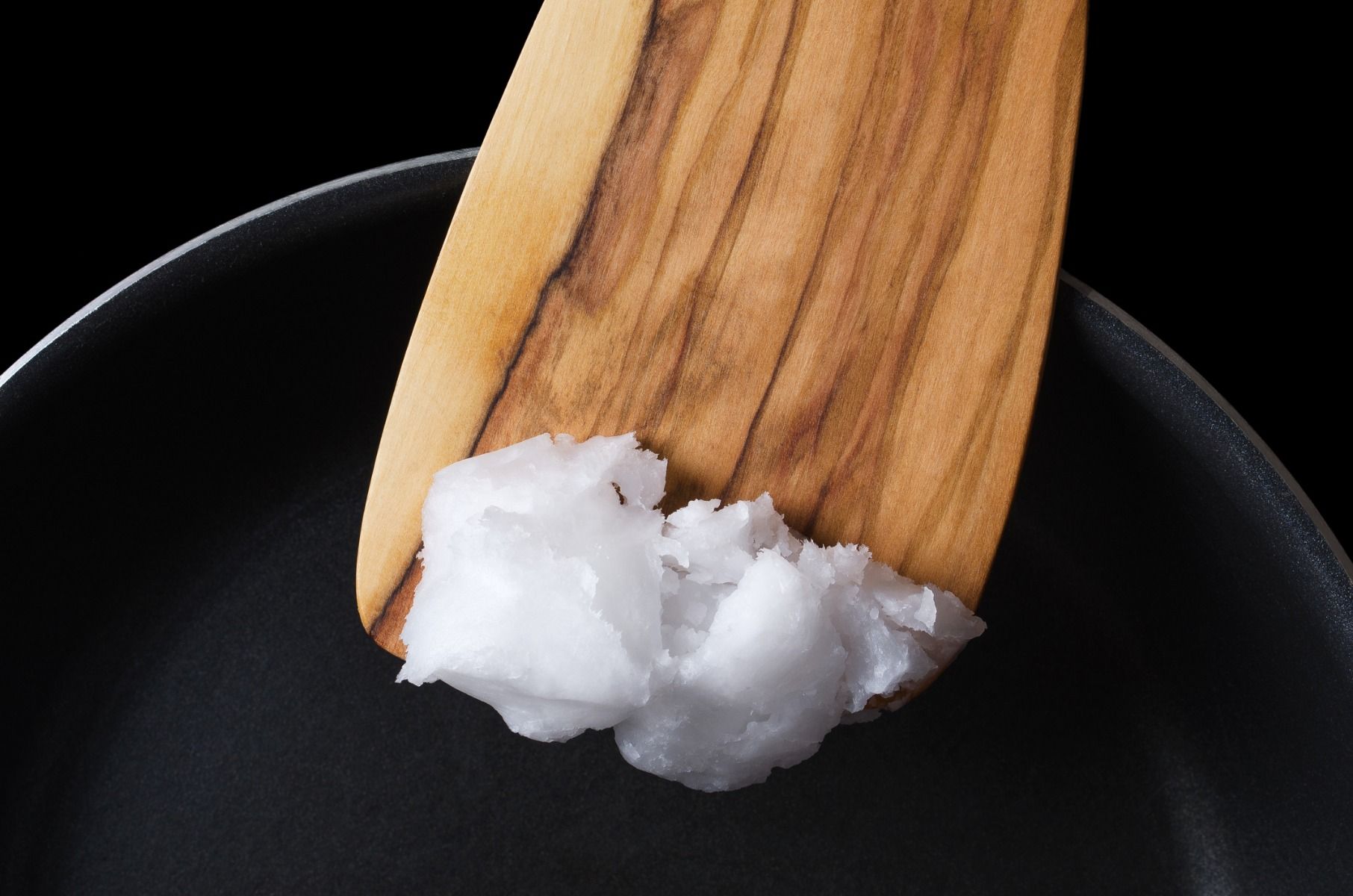
16) MINUS: Coconut oil can have low boiling point
Do not use coconut oil for frying! Tropical cousin of coconut oil, palm oil, is stable at 235°C when it is unrefined. It is the ideal temperature for frying, while the boiling point 177°C within unrefined coconut oil are potentially produced carcinogens. Refined coconut oil can be suitable for frying with the temperature 204°C.
17) PLUS: Coconut oil won’t get corrupted as much as other oils
The objects of the new recent research were highly unsaturated fats, such as corn oil. The more poly-unsaturated fat is, the easier it will get corrupted during cooking or will get slightly corrupted when it is partly oxidized in our body. In the study with pink corn oil from 1960, there had been shown that replacement of animal fat with corn oil increased the amount of deaths caused by a heart attack.
The overall message lies in that the impact of fat on one or more indirect parameters (HDL, LDL, adhesion, etc) does not always reflect the final effect of oil. It is improbable that we would try long-time attempts with high doses of certain fats, so we need to rely on the discoveries that were found out by scientists in the past.

18) PLUS: Coconut oil is antimicrobial
While lauric acid doesn’t have to be MCT component which you had always dreamed about (more information can be found in the point 8), its effect is that it has natural antimicrobial preparation. This is partly because antivirus, antibacterial compound monolaurin is composed of lauric acid.
Some of potential acquisitions are mostly in the sphere of supporters of natural medical preparations – such as rinsing of nose with coconut oil can help to prevent cavity diseases thanks to antibacterial features (even though the proofs are very limited in this point). Monolaurin is also used in many commercial products for preventing of microorganism growth and it also seems it is connected to microbial resistance to antibiotics.
There are also many potential effects of coconut oil which help at intestinal disorders by means of microbial control but the researches are limited only to animal models.
19) PLUS: Coconut oil is good for skin and hair
Indian grand-mothers are generally known that they had washed their hair with coconut oil. It is really applicable that coconut oil can prevent from hair damage. It has a unique combination of relatively short molecular chains which are also linear (so called saturated), which enable coconut oil to reach the hair nucleus.
Coconut oil can also be helpful at rough and scaly skin. It has better effect than olive oil at problems with atopic dermatitis.
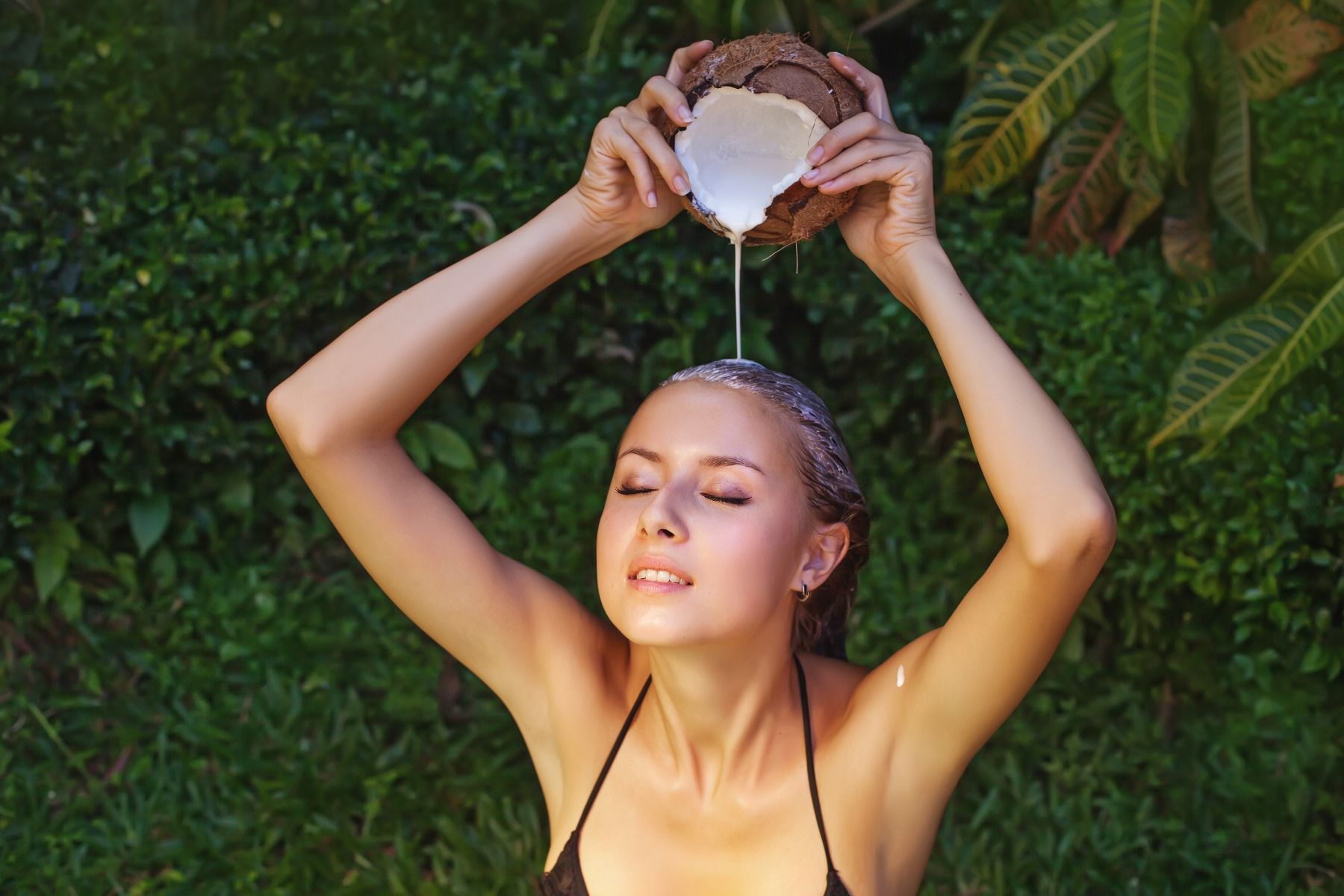
20) MINUS: Can it cause diarrhea and worsen immunity problems?
These questions are very open which are not largely examined. Some people have disrupted stomach and diarrhea at consumption of slight or big coconut oil amounts (even though it normalizes after some time within some people)
Although coconut oil can be antimicrobial, you always have to consider the options that something with positive effects can have also side effects within some people. One study realized on animals suggests that lauric acid can have harmful effects on immunity, even though this study might not be applicable within people. Possible immune modulating effects of various fatty acids in coconut oil, are largely unknown, so dose is really important: it is not probable that one tablespoon will have an impact on it but high amounts (mostly related to existing immunity) can mean playing with fire.
21) MINUS: It is expensive
Using of coconut oil is not supposition of good health and it is also one of the most expensive oils. This doesn’t mean that coconut oil can’t be beneficial for your health, since innumerous amount of proofs mentioned above, suggests its potential benefit.
What are your experiences with coconut oil? Do you use it? Let us know in the comments and in case you like the article, support it by sharing.

